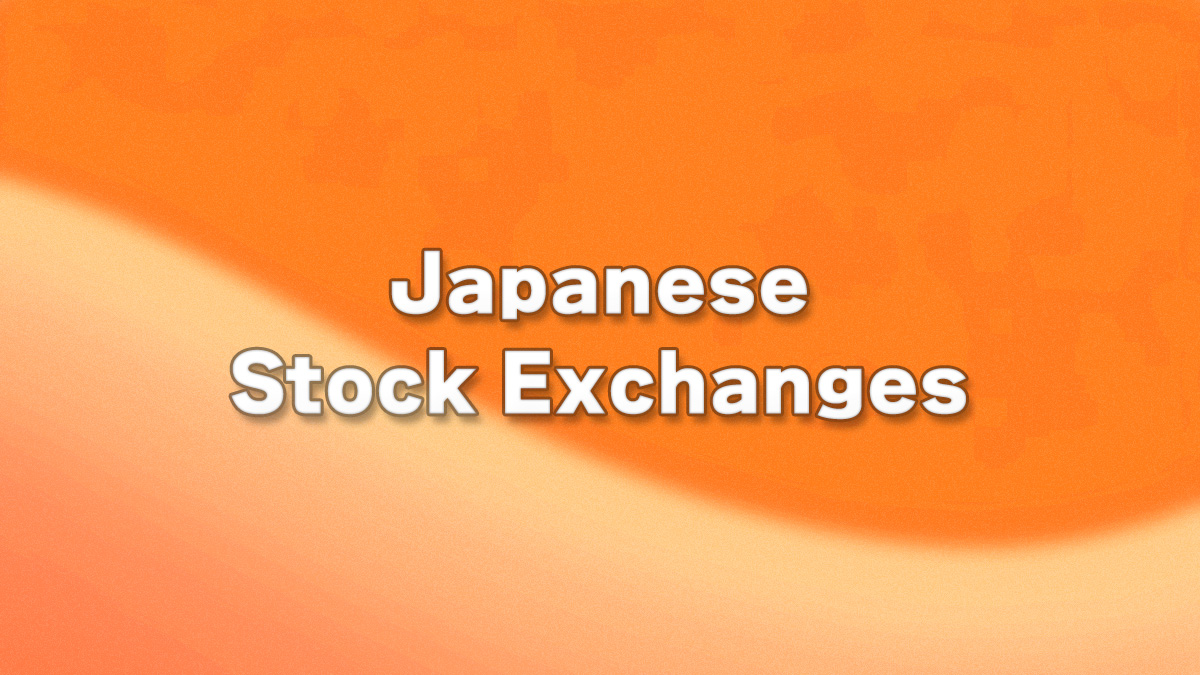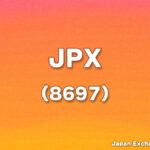
In this article, I would like to introduce the Japanese stock exchanges where stocks are traded.
The term "securities" includes bonds and derivatives, but here we will focus on the cash equities market.
This article calculates the exchange rate at "$0.0071/yen" (140 yen/$).
The sales and other figures used in this article are current as of the time of writing. The figures may have changed significantly depending on your viewing period.
Table of Contents(目次)
Stock markets
The Tokyo Stock Exchange(TSE) is Japan's single largest stock market in terms of trading volume. Companies familiar to Japanese people are listed on markets other than the TSE. However, most of the companies that are well-known overseas, such as TOYOTA and Nintendo, are traded on the TSE.
Basically, when buying or selling stocks through a brokerage firm, there is no need to be aware of the market where the company you wish to purchase is listed. The brokerage firm controls the market in which the stock is traded to ensure that it is bought and sold in the appropriate market, so the investor only needs to enter the name of the stock and the number of shares to be purchased.
| Exchange | Share (%) |
|---|---|
| Tokyo | 99.97% |
| Nagoya | 0.016% |
| Sapporo | 0.0047% |
| Fukuoka | 0.0036% |
Overview of the TSE Stock Market
The TSE stock market consists of Prime, Standard, and Growth, which have different listing standards. Although it is possible to trade stocks without knowing these details, knowing the listing standards of the market to which a stock belongs will satisfy the needs of those who want to invest in large companies and those who want to invest in emerging companies.
Prime is for large companies within the TSE, and Growth is for emerging companies. And companies of sizes in between are standards.
| Market | Trading Volume | Trading Value | Market Capitalization | Listed Companies Listed Issues |
|---|---|---|---|---|
| Prime | 163,981 ten thous. shs. | 3,935,856 mil. yen | 841,843.732 bil. yen | 1,655 1,657 |
| Standard | 34,238 ten thous. shs. | 131,073 mil. yen | 27,611.536 bil. yen | 1,619 1,619 |
| Growth | 13,271.22 ten thous. shs. | 126,742 mil. yen | 6,709.775 bil. yen | 562 562 |
Opening an account at a securities company
Foreign nationals residing in a foreign country can basically open an account at a securities company in their home country and trade Japanese stocks.
However, they can only trade stocks handled by the securities company with which they have opened an account. (Similarly, when Japanese nationals trade foreign securities at a Japanese securities company, they can only trade stocks handled by that securities company.)
Foreign nationals (non-Japanese nationals) can also open an account at a Japanese securities company if they reside in Japan. Basically, all Japanese stocks can be traded at Japanese securities companies. However, since securities companies' websites and telephone contact points are basically in Japanese, a certain level of understanding of the Japanese language is a prerequisite.
Trading Unit
In Japan, only 100 shares can be purchased in units of 100, which is rare worldwide. In the past, stocks with higher price per share could be purchased from 1 share, but all stocks have been standardized to 100 shares. I want all stocks to be purchasable from 1 share, but for some reason, Japanese stocks can only be purchased from 100 shares, which is frustrating.
In addition, the securities companies have their own services that allow you to buy stocks from one share. Please note that this is only a service unique to the securities company, and the commission may differ from normal transactions.
Ticker Symbols
Japanese listed companies were assigned a four-digit numeric code until 2023 ("7203" for TOYOTA Motor Corporation). However, since a four-digit number is no longer sufficient, alphabetical codes will also be used from 2024. The first "alphabet code" for Japanese stocks is "130A. Unfortunately, this "alphabet code" is not tied to the company name as in the case of U.S. stocks but is assigned as a sequential number combining numbers and letters. Therefore, Japanese people also cannot associate company names with codes alone. When looking for stocks, companies are searched for using the screening functions of securities firms.
Finally
How was it? We hope that this article has helped you understand a little more about the Japanese stock market. I plan to write articles on Japanese securities companies in the future, so please look forward to them.
The information on this website is not intended as a solicitation to invest or as investment advice. It is not intended to suggest or guarantee future trends in stock value, nor is it a recommendation to buy or sell. Investment decisions should be made at the user's discretion. While every effort has been made to ensure the accuracy of the information contained in this website, the website administrator assumes no responsibility for any errors in the information, problems caused by downloading data, or any other losses incurred as a result of trading in stocks or other securities.
